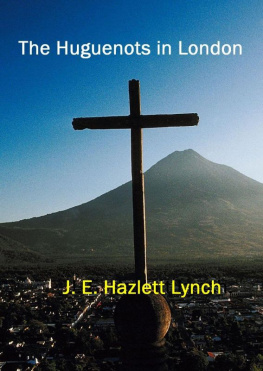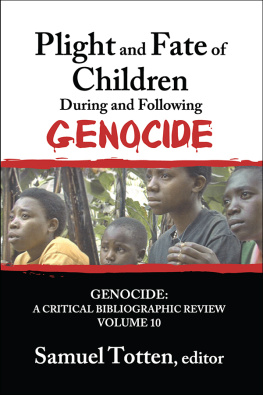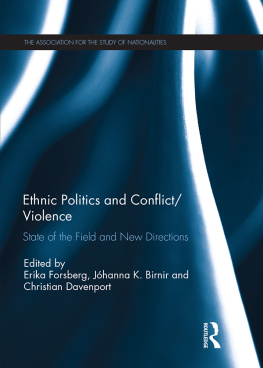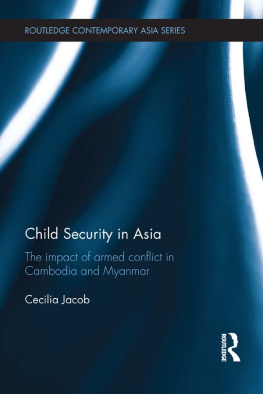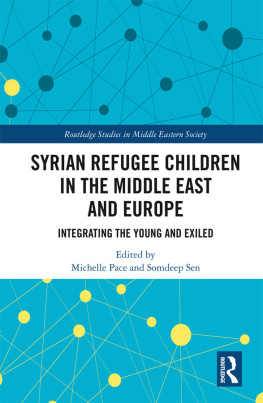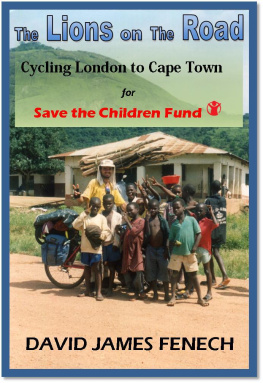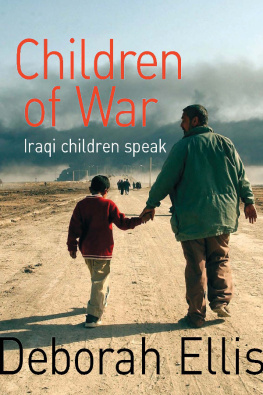During the late 1950s I worked as a resident in pediatrics and child psychiatry on the wards of the Childrens Hospital Boston; and so doing, I met many children who were not only sick but hurting with unremitting pain, debilitating to both mind and heartto the point that some boys and girls dared say to their parents (and to us doctors), that they wished for death, whose arrival, they averred, would end the agony they no longer felt able to bear, even with a modicum of equanimity. One day, as I talked with a ten-year-old lad who had contracted polio, and who was paralyzed from the waist down (no vaccine was available then, to spare children from such a dreadful, disabling disease), I heard this from Jimmie: My dad fought in the war [the Second World War], and he said he saw a lot of kids my age get killedand he even saw some fighting hard, like good soldiers, so their country [France] could be free, from that dictator, Hitler, and his army. A moment of silence, and then, as if my perplexity had become quite apparent, this soliloquy of sorts: You have to be brave, and keep on fighting. If kids could fight for their country in Europe, I sure can try to fight for myself, right here and now. Be a good soldier, my mother and dad tell me, and then I say, You bet I will. So, when they come to visit me, they ask how the soldier is doing, and I say, The soldier is fighting hard, and I hope he wins the war.
There are, of course, soldiers and soldiers; indeed, young Jimmie, before his hospitalization, had often played soldier games in the backyard of his suburban Boston home. He and his friends had taken sides, shouted and screamed at one another, aimed sticks as if they were guns and made noises bang, bang, bang! to affirm deadly intent. My dad was a soldier, and me and my pals fight like soldiers, and our dads coach us, Jimmie once told me. Yes, indeed, here were American children and their parents (one-time warriors in Europe and Asia), engaged in vigorous military activity, so it seemed to all who watched: My mom, Jimmie told me, said I could go to join the army, and theyd not have to teach me much, because of what my dad and the other dads [of his neighborhood friends] have taught meand remember, in a real war, kids sometimes fight too, or they sure see the fighting right before their eyes.
That long-ago critical moment in my occupational life came back to my mind as I read the pages that followtheir collective words an unforgettable lesson for all of us readers: children become witnesses of war fought, and further, children become warriors themselves, ready and willing to take up arms, even as they observe others doing likewisea violent world registering its implacable philosophy on others, who are violated in the name of this or that slogan, creed, military or political or social or national reality. You know in battle, a lot of times its the blind leading the blind, the good fighting the bad, the smarties foxing out the dummies, the lucky ones beating out the ones who are dying, down on their luckso Jimmie had learned from his veteran soldier dad, and from other dads (those of his friends), who had also fought for America in the 1940s.
Now, we readers of this book can meet children like Jimmie and his next door palsyoung ones not playing war games for fun (or at the behest of remembering parents, alive and doing well in the peaceable kingdom of the United States of America), but, alas, swept into ongoing warfare, and become, willy-nilly, actual combatants or victims of others wielding guns, knives, and bombs.
Ahead are those children, and ahead for us who meet them through a books knowing, resolute insistence, is plenty to ponder: knowledge offered becomes ours to have, to hold up to our minds eyes for sustained consideration. We are offered, too, in this volumes extraordinarily affecting presentation, the valuable words of Anna Freud; and as I met them, I kept on remembering her thoughts about children, caught in the turmoil of the war being waged near their homes, their families, and their friends. I was privileged to know her, hear her recall the past, and reflect upon what she had learned (so often) by watching boys and girls attentively, and keeping in mind what they had said to her.
So often, children learn violence from others, she once remarked to me, and then this follow up: That is obvious [what she had said], but not so obvious, at least to some of us who worked with children in London, during the time of the [Nazi] blitz was the lure, you could call it, of violence, of war, of aggression visited, and then returned in kind. My father in his writings knew to emphasize aggression as an aspect of all of our psychological lives, but when that drive, he called it, becomes the norm, so to speakand the young are summoned to what might be termed a call to armsthen, in a sense, aggression is given the sanction of the adult world, and enacted by it. Here we have, under such circumstances, an extraordinary kind of childhood being allowed (encouraged even) by parents, teachers, and civic authorities: boys and girls prodded (taught even) by adults to be fighters, to join with adults in their attitudes, feelings, and, yes, their actions. I saw in London some children fighting as if they were the Germans or on our sideand I knew that in Europe, during the war, some children fought alongside adults, as ones who did errands, surely, but also as ones not only spying, running here and there, but taking ordersthe young become fighters alongside their elders.
A moment of silence, then this: So it goes, children become fighters, warriorsand today, thanks to this compelling book, the rest of us can know, as Anna Freud put it, how it goes, in our twenty-first century for children across the globe, caught in the throes of war, become witnesses to it, become soldiers in itstruggling for victory over others, and all the while, struggling to grow up in an all too callous, even murderous, world.


